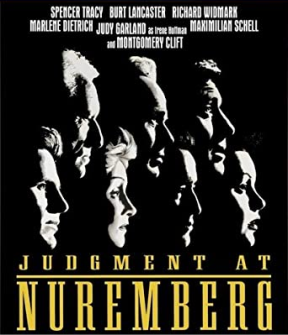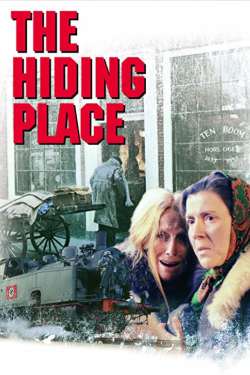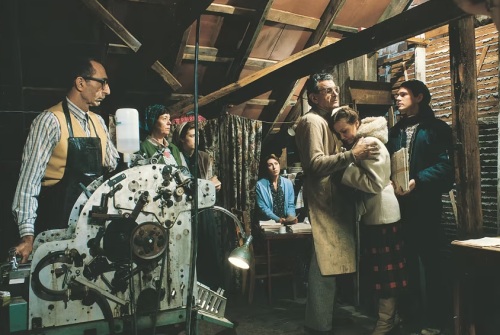Totalitarian Movie Night!
Over the past few months, God has given us the opportunity to think through a lot of things that we haven’t thought through before. Such as, of course, the roles and limits of government, and the meaning of freedom.

Because of our study in Romans, and also our anthropology series, I’ve done a lot of research and reading that I wouldn’t have done otherwise. But you didn’t come here for a list of books – maybe later. Instead, you want to host your very own totalitarian movie night!
So I have three suggestions for you. And I’ll give you a bit of background on each one, and then give you and your friends/family some things to think about and look for in each movie. We’ll go in chronological order.
Judgment at Nuremberg (1961): So who wants to watch a three-hour black and white movie about a trial? You do, of course. As far as movie quality goes, this has to be the best on the list. With an all-star cast, the acting and writing are amazing. Spencer Tracy, Maximilian Schell (who won an Oscar for his performance), and you’ll even see Judy Garland and a young William Shatner. This movie actually won two Oscars and was nominated for 9 more.
Judgment at Nuremberg is a fictionalized account of the trials convened by the allies after World War II, examining the perversion of justice from many different angles.
What to watch for: What different motivations did the various defendants have for what they did? At what point (if any) did they say “enough is enough”, and why?

The Hiding Place (1975): I know some of you are thinking – “I think I watched that years ago…” or perhaps “I read the book”. Well, it’s time to watch it again. It’s not the overall story that’s most important, it’s the details.
This is, of course, the World War II saga about a Dutch family who begins hiding Jews because of their Christian convictions. It follows life not only under the restrictions of the Nazis but into the horror of the concentration camps. This movie does not shy away from the big questions, and you may not always agree with the implied answers – but we need to think them through.
What to watch for: How did the Nazis attempt to control the populace? Why did Papa ten Boom “want to” wear a yellow star? Why were the ten Booms given “friendly” warnings about hiding Jews?
The Printing (1990): This time we’re moving up to the 1980s, and the struggles of Christians in the Soviet Union. This is a fictionalized summary of remarkable things that really did happen.
Although it hits on various topics, the main theme is the underground printing of Bibles. Various freedom fighters and Christians take different approaches and sometimes have serious disagreements about how to survive under oppressive conditions.
What to watch for: Watch the pastor. What are his motivations for what he does? Why does he oppose whom he opposes? Also, what does the government do to give a false impression to the world of what is going on?

“Enjoy” your totalitarian movie nights, and let me know how it goes!
